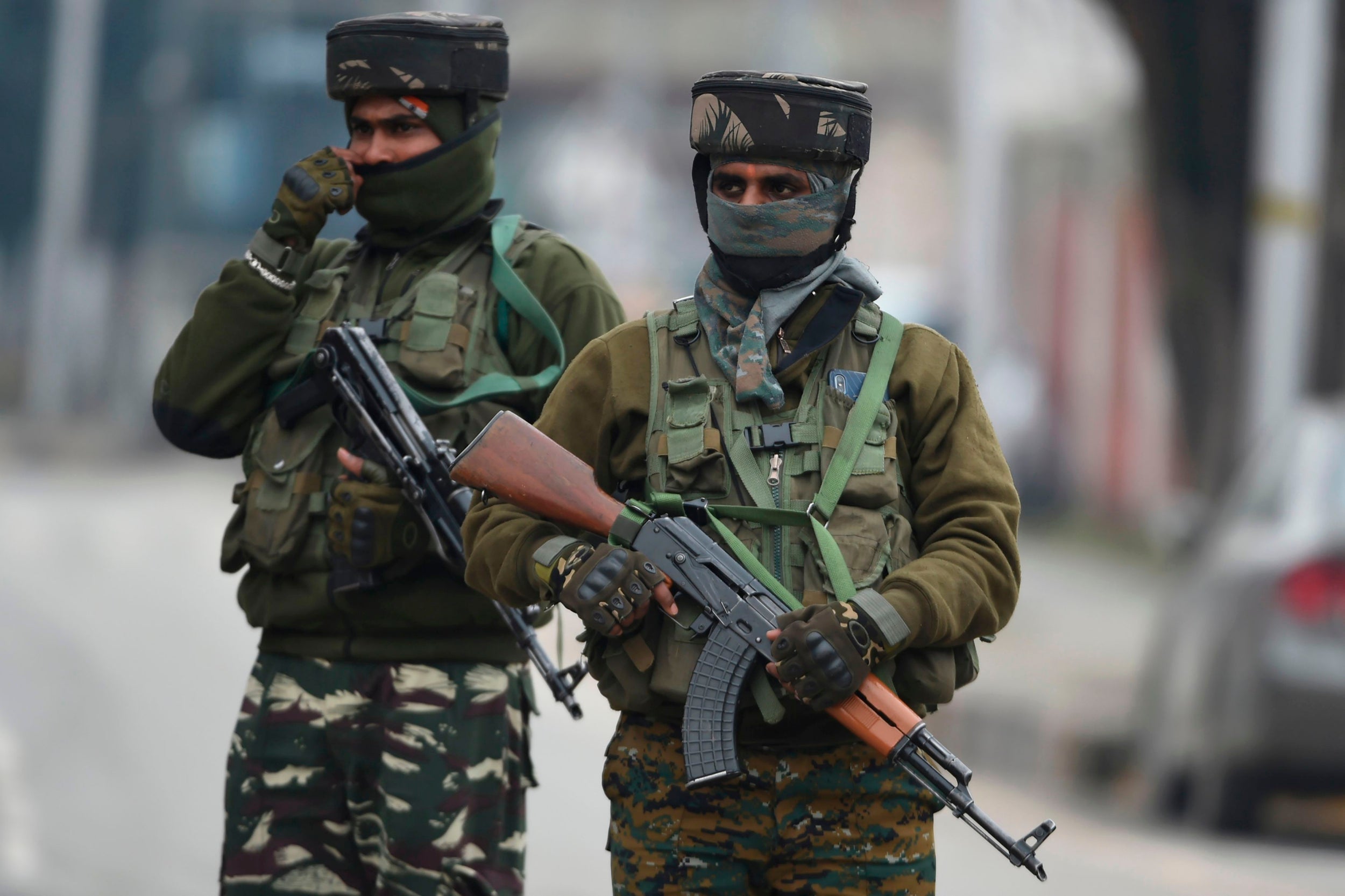India's top court rules indefinite ban on internet in Kashmir 'unconstitutional'
'Freedom of Internet access is a fundamental right,' says Supreme Court justice

India’s Supreme Court has declared freedom to access the internet as a “fundamental right”, criticising the months-long shutdown in Kashmir and ordering the government to review it.
In a victory for petitioners from the opposition and media, the court said that an indefinite suspension of internet access was an unconstitutional abuse of power.
Supreme Court justice N V Ramana gave Narendra Modi’s administration one week to review all the restrictions it has imposed on the Indian-controlled portion of Kashmir.
The lockdown was intended to preempt any unrest in early August last year when the government announced it was stripping Muslim-majority Kashmir of its special status, and breaking up the state of Jammu and Kashmir into two less autonomous union territories.
It included the deployment of thousands more troops to the region, strict curfews, the arrests of dozens of senior political figures and a comprehensive shutdown on communications.
Some restrictions have been slowly lifted, but the internet block remains - at more than 150 days, it is believed to be the longest such shutdown ever implemented not just in India but in any democracy, according to digital rights group Access Now.
“Freedom of Internet access is a fundamental right,” Justice Ramana said at the hearing on Friday.
Congress, the main opposition party in India, said the ruling had delivered the “first big jolt of 2020 to illegal activities of Modi's government”.
Vrinda Grover, a lawyer representing the petitioners, said the Supreme Court also directed the government to make public all orders imposing the lockdown in Kashmir since August.
“This sheds light on the rationale behind internet shutdowns which then can be challenged as being constitutional or proportionate or not,” said Nikhil Pahwa, activist and editor of MediaNama, a Delhi-based digital rights and policy publication. “If the state is forced to be transparent, they will be more accountable.”
Kashmiris, who only recently were given back the ability to send and receive SMS text messages, celebrated the Supreme Court ruling.
Sheikh Ashiq, president of the Kashmir Chamber of Commerce and Industries, said the lack of internet access had made business for many sectors “impossible”, particularly tourism.
“With the Supreme Court order, we are hopeful that the government won’t wait for internet restoration now,” he told the Hindustan Times.
The court said on Friday that the internet shutdown has had a particular impact on freedom of the press, a key tenet of freedom of speech and expression.
Asem Mohiuddin, who runs a news website in Kashmir, said he had been forced to leave the valley to keep the portal running.
He said the decision was “very encouraging”. “In today’s age, internet is the basic infrastructure of life,” he said. “We welcome this decision and request the government to restore internet facilities as soon as possible.”
On 1 January, the authorities announced the restoration of internet access to 80 government-run hospitals in Kashmir.
The court ordered this be extended to all hospitals, as well as to other essential institutions including educational establishments, according to the Press Trust of India.
Kashmir has, apart from isolated clashes, existed in an uneasy calm since the changes of last August were made.
This week the government took envoys from 15 nations, including the US, on a carefully choreographed tour of Srinagar, having previously invited a group of mostly right-wing MEPs.
Opposition politicians have been denied access to assess the situation except where expressly granted permission by court order, as have British and European envoys and foreign journalists.
Subscribe to Independent Premium to bookmark this article
Want to bookmark your favourite articles and stories to read or reference later? Start your Independent Premium subscription today.

Join our commenting forum
Join thought-provoking conversations, follow other Independent readers and see their replies